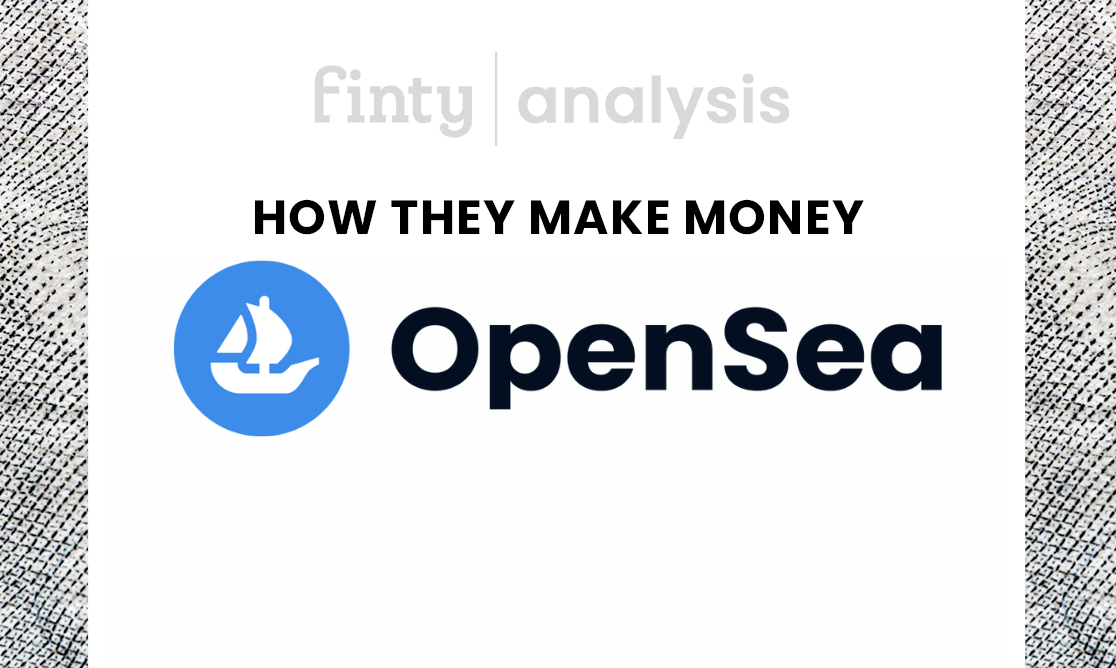- OpenSea is the largest online NFT marketplace allowing the sale, purchase, and trading of NFTs.
- OpenSea experienced a hack in early 2022, damaging its reputation with users.
- OpenSea makes money by charging users service fees when selling or trading NFTs on its platform.
Devin Finzer (CEO) and Alex Atallah (CTO) founded OpenSea in December 2017, with headquarters in New York City. With more than $250 million in sales to date, OpenSea is the largest online NFT marketplace. Finzer and Atallah got the idea for the platform in 2017, applying to "Y-Combinator," where the team received seed funding of $120,000.
The pair focused the project on the concept of sharing Wi-Fi bandwidth using its blockchain technology. However, the team pivoted to create the OpenSea platform in early 2018. By the time the pair officially launched the platform in March 2018, it posted sales of over $500,000 in digital collectibles.
Keep scrolling for more on how the NFT marketplace actually generates revenue.

Coming up next
What does OpenSea do?
OpenSea operates an online marketplace specializing in selling non-fungible tokens (NFTs). People can use the platform to buy, sell, and trade a range of digital collectibles, including trading cards, music, art, domain names, and many more.
The OpenSea platform originally operated on the Ethereum blockchain, utilizing the cryptocurrency's "smart contracts" feature. However, the company bolstered the performance of its platform by integrating support for the "Klaytn" blockchain.
OpenSea currently uses the layer-2 Ethereum protocol "Polygon" to minimize trading costs for users and avoid the high gas fees associated with the ETH blockchain while increasing transaction speeds. OpenSea is home to more than 34-million NFTs, with more than 300,000 registered users using the platform to trade collectibles and digital assets.
How does OpenSea work?
Users can purchase NFTs and digital assets on its platform using the Ethereum cryptocurrency (ETH). OpenSea also supports 150+ cryptocurrencies for transactions. To complete a purchase or trade on the platform, users must download the "MetaMask" wallet.
Users can purchase their digital collectibles by accepting the seller's set price or bidding on the NFT or digital asset. Sellers can connect their wallets to the platform, create their listing and wait for the market to purchase their digital asset.
OpenSea tracks all transactions on its platform using the Polygon chain. It lists past transactions like sales, bids, transfers, and more. This system makes it easy for users to track their assets' past performance and trade value.
How OpenSea makes money
OpenSea makes money by charging users a service fee for trading on the platform. The company receives a commission every time a sale closes on the site.
OpenSea charges a 2.5% commission on all sales. OpenSea has a competitive service fee offering, competing with other NFT exchanges like Rarible. The company provides the use of its infrastructure free of charge to its users, with no monthly subscription fee required to access the site.
As a result, the company doesn't charge users listing fees for uploading their NFTs for sale. OpenSea saw a massive increase in users during the NFT bull market of 2021, from April through to September. The company earned its reputation as the market leader by covering the "gas fees" associated with ETH blockchain transactions.
The company built its reputation in the market by taking an active role in the NFT community. 1confirmation, one of the platform's first investors, spent months engaging with users in various Discords to attract users to the marketplace.
OpenSea acts as a reliable and somewhat secure (more on that in a bit) intermediary between sellers and buyers looking to trade or invest in NFTs. Users know that they are getting authentic NFTs. Sellers can tap a pool of buyers, driving up the selling price for their digital assets.
Future growth engine
In early 2022, OpenSea experienced a hack that saw bad actors make off with NFTs to the value of $1.7 million. This attack damaged the company's reputation as a safe and secure marketplace.
However, while the hack was well-reported in the media, it didn't seem to slow the company's growth and dominance of the NFT market.
OpenSea Co-Founder and CEO Devin Finzer acknowledged the hack, stating that the breach affected 32 users. As a result, OpenSea tightened its security and focused on monitoring the platform against future attacks.
Competitors
OpenSea competes with other leading NFT exchanges for market share. Some of its top competitors are the following online NFT marketplaces:
- Rarible
- Coinbase NFT
- FTX NFTs
- Binance NFT
- Zora
- Magic Eden

